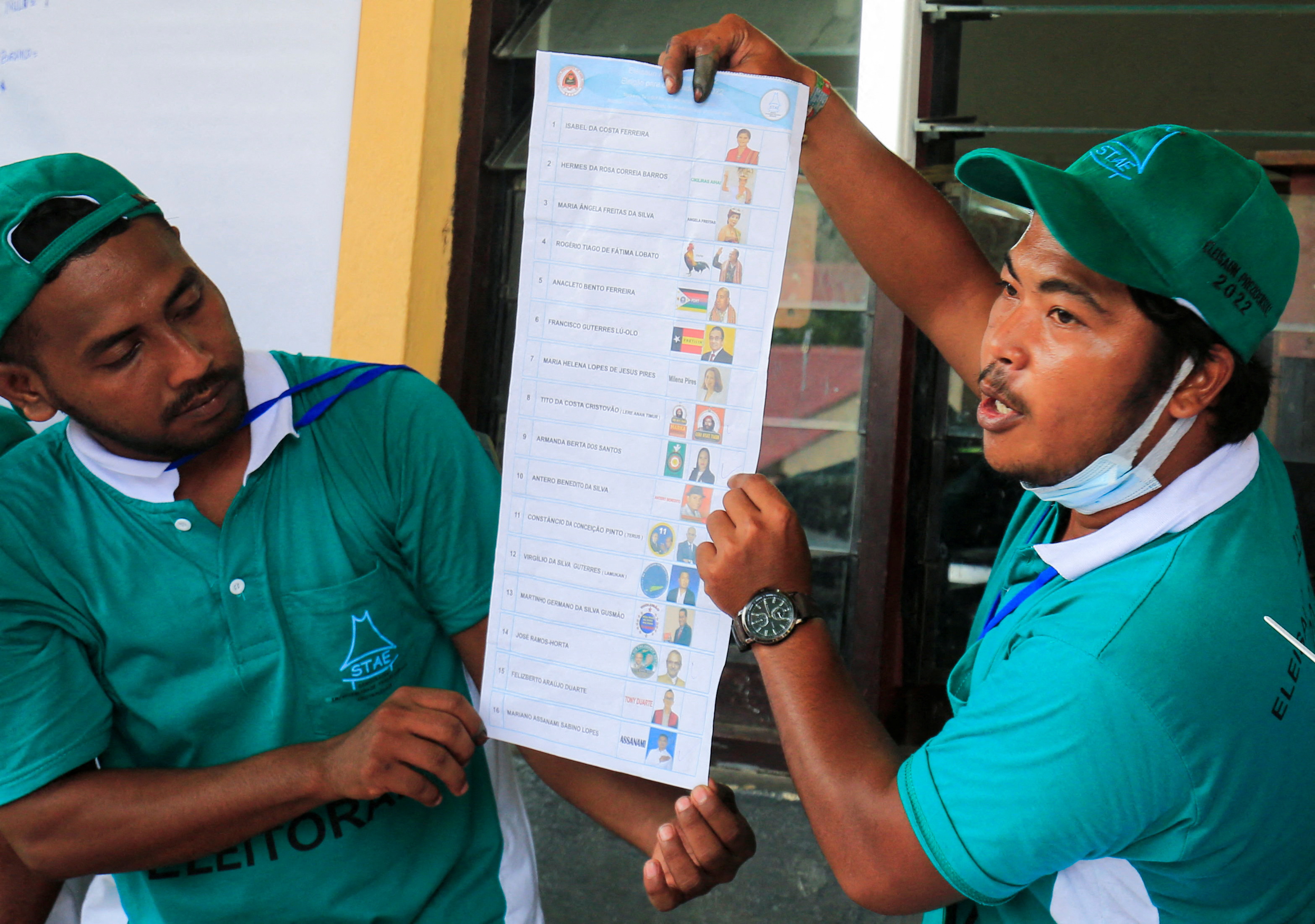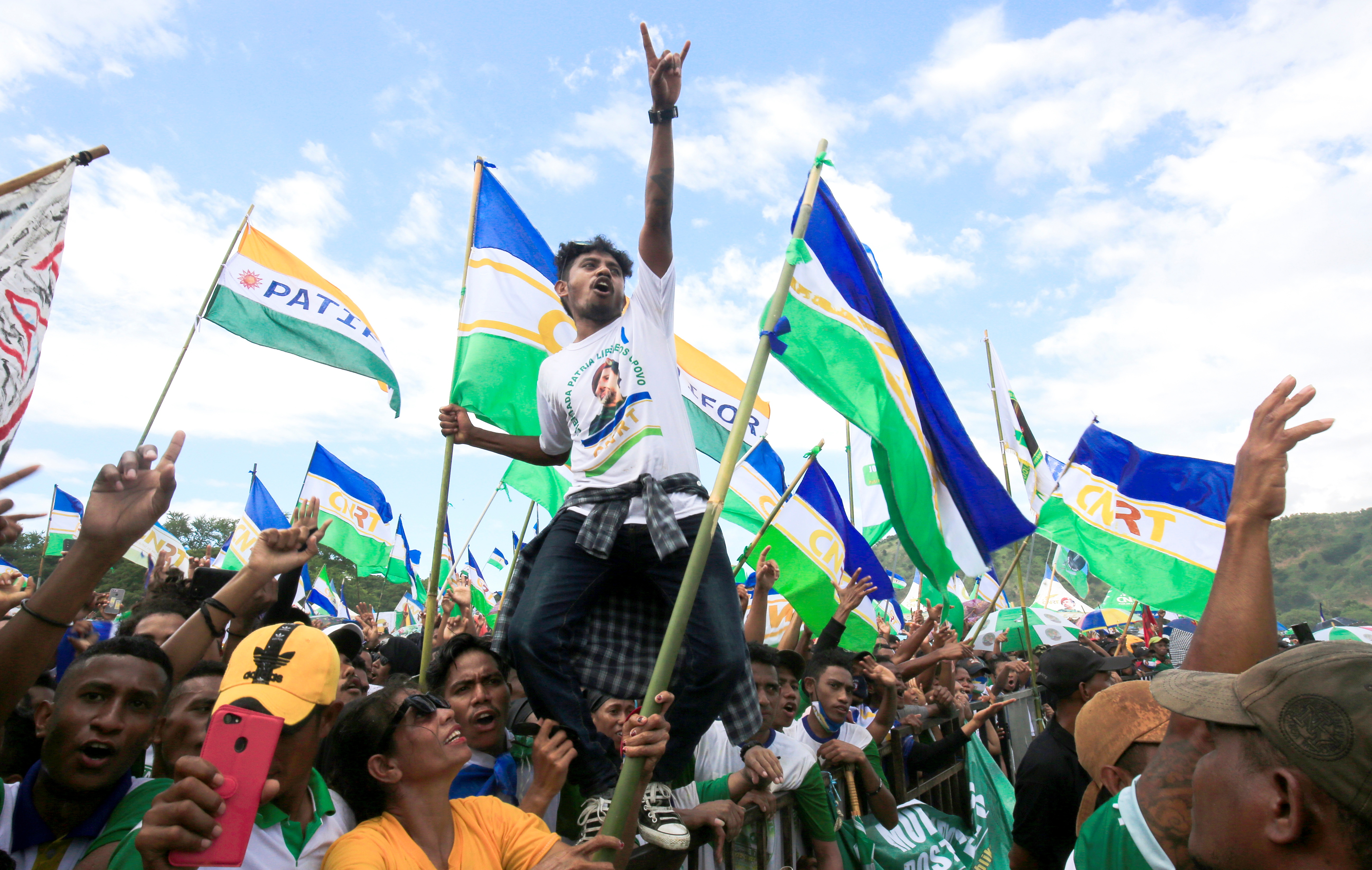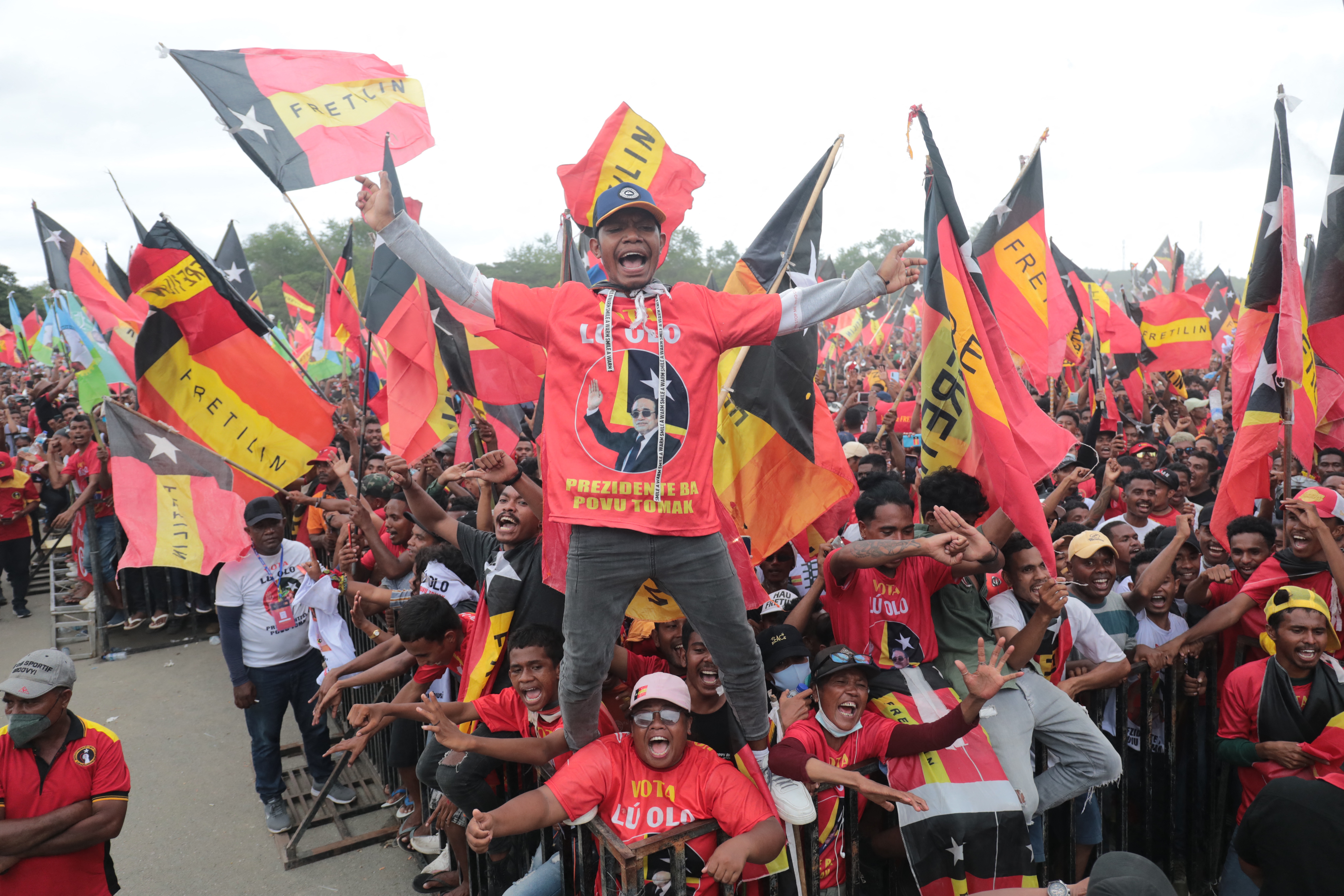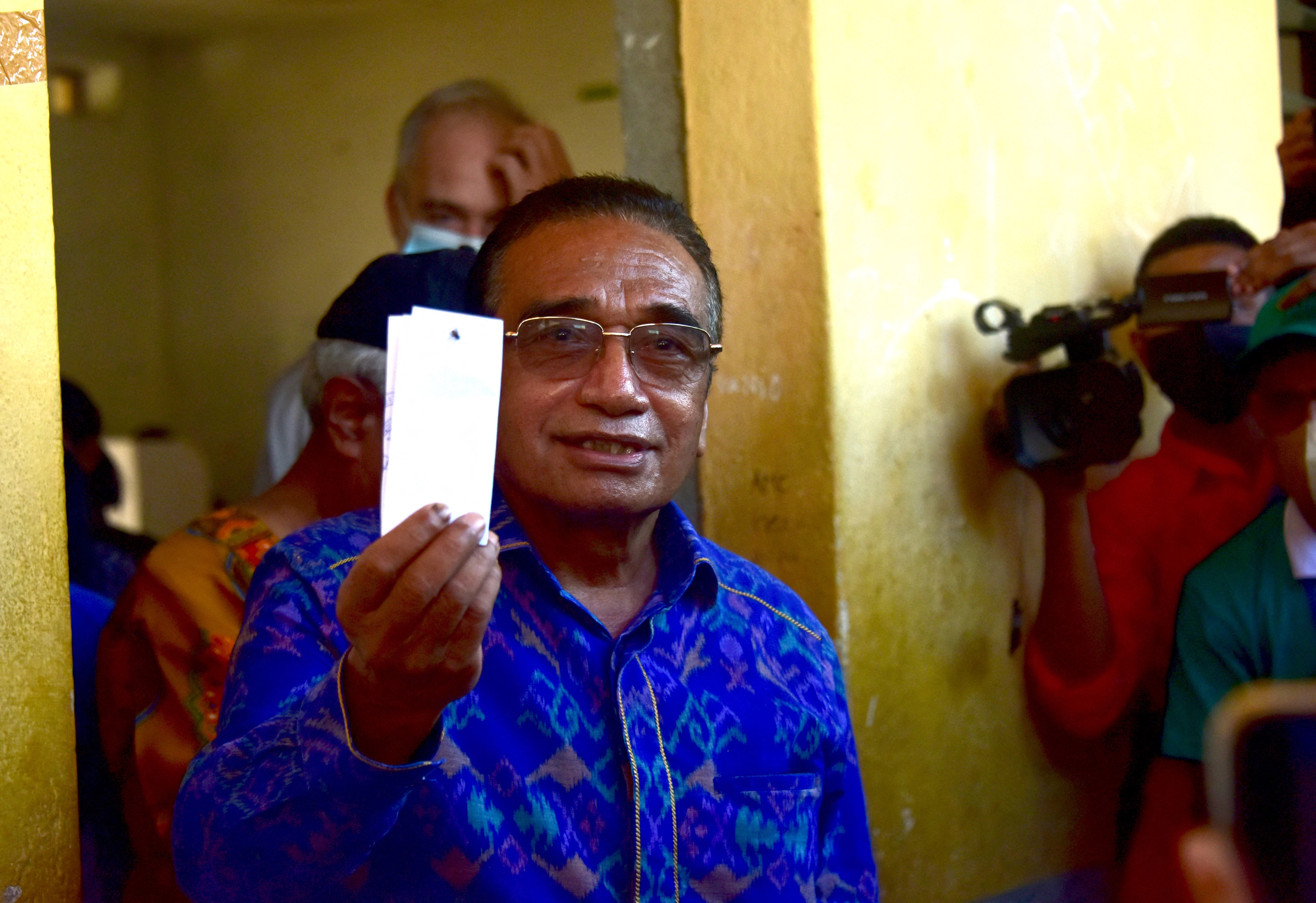
Voting in the second and final round of presidential elections in East Timor – officially known as Timor-Leste – has closed, with the region’s newest nation facing a generational crossroads.
Counting of ballots started after polling stations closed at 3pm local time (6 GMT) on Tuesday.
Since independence in 2002, after a brutal 25-year occupation by Indonesia, the country of 1.3 million people has seen years of political upheaval and hotly-contested elections involving a small cohort of familiar faces.
In the current campaign, political veteran and Nobel laureate Jose Ramos-Horta – running as an independent candidate – needs to improve on his first-round performance by only 30,000 votes to secure the presidency.
The 72-year-old former president and prime minister fell just short of the 50 percent share of the vote required to avoid a runoff in the initial voting that took place in March.
His opponent is incumbent President Francisco ‘Lu Olo’ Guterres, who leads the longstanding resistance-era political party FRETILIN (the Revolutionary Front for an Independent East Timor).
The 67-year-old Guterres, a former rebel fighter against the occupation, finished the first round with just more than 20 percent of the vote.
Lurking in the wings, meanwhile, is the charismatic independence hero Xanana Gusmao, who leads the CNRT (National Congress for Timorese Reconstruction) party and was the country’s first president as well as its fourth prime minister.

With one eye on parliamentary elections due to take place next year and a hoped-for return to office, the 75-year-old has thrown his backing behind Ramos-Horta.
“The senior elected positions in Timor-Leste are still dominated by the 1975 era of politicians,” Michael Leach, a professor of politics and international relations at Swinburne University in Australia, told Al Jazeera.
“There is a sense that this is a legacy election for that generation. This is the election where they set their legacies and so there’s a lot at stake. The question then is how they bring through the next generation of leaders.”
Economic challenges
East Timor has one of the youngest populations in the region, with an average age of 20 years, who face rising unemployment and a reluctance from political leaders to diversify the economy away from gas and oil and into education, agriculture and tourism.
At least 20 percent of eligible voters are just 17 years old and participating in their first election.
“The current candidates in the runoff election are old faces in Timor-Leste’s politics,” researcher Abrao Pereira, 35, told Al Jazeera. “I would have liked to have a new face bring a new colour, a new hope into the politics.
“It’s good for the young people to be involved in politics. Because this is the way to influence big changes in the country in terms of the big decisions that need to be made at the top level.”
Pereira adds that he would like to see the future of East Timor be the primary focus of the election, not old rivalries.
“For me the future of [Timor Leste’s] children depends greatly on the actions of today’s politics. A power struggle has been at the centre stage and if this is the political situation moving forward I don’t see a better future for the children of this country.”
“The key political leaders need to understand that what they are doing is not only impacting what is happening at the moment but will have long term impacts on the generations to come.”
Ramos-Horta has campaigned on bringing stability to the government and hinted that he could call early parliamentary elections if he wins.
Guterres’s campaign has been undermined in part by in-fighting in his party, but he told reporters in Dili he was confident of winning.
“I am confident that I will win the election again,” Guterres was quoted as saying.
“I call on people to accept whatever the result, and I am ready to work with whoever wins this election.”


The political rivalry between the presidency and parliament has also fuelled instability in the current incarnation of government.
In 2018, Guterres refused to swear in seven of the CNRT ministers, citing corruption allegations or poor moral standing.
“This highlighted tensions between Fretilin and CNRT, and the potential problem is of ‘cohabitation’ when the president and prime minister come from different parties,” Leach said.
Having been in opposition for two years, Gusmao hopes that by backing Ramos-Horta as president, he can engineer a path back to power despite his advancing years.
Should Ramos-Horta win, Gusmao is likely to push for the resumption of the controversial Tasi Mane oil and gas project, an initiative that was put on hold under the current FRETILIN government.
The project entails investing the majority of the small nations’ funds into an oil and gas project on the south coast of the island. Opponents of the project say gambling the nation’s wealth on a finite resource is a risk too big to take.
Yet it is also considered to be Gusmao’s legacy project, hence the veteran politician’s backing of Ramos-Horta.
Fresh ideas
In return, Gusmao’s public support of Ramos-Horta has given the independent candidate the necessary vote boost to give him a serious chance at the presidency.


However, younger voters say that instead of such political deal-making, it is time for new ideas.
“The old generation should give a chance to the young to be involved in politics,” said Tina Quintas, a 33-year-old school teacher. “It’s not as though they are old and less able to manage the country, it’s just good to let the young ones in with new, fresh ideas about the better governance of this nation.
“If women are involved it is important in terms of gender equality. All people have the right to participate in a democratic government. If women are involved more, things could get better in a better way. It is the attitude. If there were more women there could be more changes.”
The East Timor Electoral Law of 2006 requires that women make up one-third of listed party candidates. Such mandatory quotas mean that approximately a third of parliamentarians are women.
The current deputy prime minister is a woman; Armanda Berta dos Santos is one of two deputy prime ministers and is the leader of Enrich the National Unity of the Sons of Timor (KHUNTO).
Her party seeks to represent the disenfranchised youth of East Timor and won nearly nine percent of the vote in the first round of the presidential election.
East Timor has a strong history of commitment to voting in the democratic political system, despite the instability and violence that has at times accompanied the process.
Turnout was 77 percent in the first round of the presidential election last March, higher than in the previous poll in 2017.
About 98 percent of the eligible population voted in the 1999 referendum for independence from Indonesia even amid brutal fighting and attacks from the Indonesian military and armed groups that forced thousands to flee.
There was violence too in the 2006 elections, and in 2008, Ramos-Horta was shot in an assassination attempt.
Given the ructions of the past, Quintas says she hopes things will remain calm no matter the outcome.
“I just hope that the election will go peacefully, that there’s no dramas, nothing going on. And I also hope that whoever is going to win that people will not react to that and just accept the outcome of the election.
“Hopefully whoever wins this time they will go with the plan and whatever they have promised to the people of Timor-Leste and whoever wins leads this nation for a better future.”
The incoming president will be installed on May 20, the 20th anniversary of Timor-Leste’s freedom from Indonesia.







